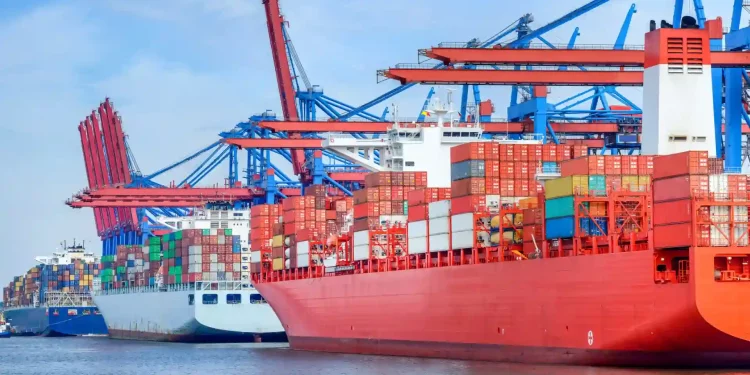Free trade has been an enduring part of American political ideology for the past seventy years. While America before WW2 was quite protectionist, in the aftermath of the war, the USA has been a champion of free trade as a means to ensure global prosperity and peace (as well as to combat communism). However, that seems to be changing rapidly.
It is quite disconcerting how little Joe Biden’s trade policy has changed from that of Donald Trump. While the rhetoric from the two administrations is polar opposite on trade, they sound remarkably similar, differing only in ideology. Trump, for example, wanted to use trade as a tool for promoting American labor at the cost of American allies, while Biden aims to use trade policy as a tool to secure his objectives on security, climate change, and, yes, workers’ interests. Neither seems particularly keen to go back to the Clinton era of globally expanding free trade.
This brings us to the question: Is free trade in America dead?
Free trade has been a contentious issue in the United States for many years, with both supporters and critics of free trade making compelling arguments. Proponents argue that it helps raise living standards by lowering consumer prices and choice as well as increasing competition. They also argue that protectionism can lead to retaliation by other countries, which can harm American exports and, eventually- the economy.
While the United States has traditionally been a strong advocate of free trade, recent years have seen a shift towards more protectionist policies, which has led some to question whether free trade is on the way out in the country. Those who support protectionism argue that it helps protect American jobs and industries by creating a level playing field for American businesses by ensuring that they are not unfairly disadvantaged by foreign competition. There is a strong feeling in America that they have been taken ‘advantage’ of unfairly by other countries.
In recent years, the United States has engaged in a number of high-profile trade disputes with countries such as China, Canada, and the European Union, resulting in the imposition of tariffs on a wide range of goods. These tariffs have been controversial, with some arguing that they have led to higher consumer prices and harmed American businesses that rely on imported goods. Another form of protectionism that has been used in the United States is quotas which limit imports and can be used to protect domestic industries from competition. For example, the United States has imposed quotas on steel imports in the past in order to protect the American steel industry.
Trump & Biden- two sides of the same coin
The Trump administration, in particular, was known for its protectionist trade policies, which involved the imposition of tariffs on a wide range of imported goods and a renegotiation of key trade agreements such as the North American Free Trade Agreement (NAFTA). While the Biden administration has signaled a shift towards a more multilateral approach to trade, there are still concerns that the protectionist policies of the past few years may have had a lasting impact on the US’s commitment to free trade. While the Biden administration has reversed some measures, overall, their approach is not very laissez-faire and has a heavily interventionist tenor.
One of the key pillars of Biden’s trade policy is the promotion of American workers and industries. Biden has pledged to prioritize the interests of American workers in trade negotiations and to ensure that trade agreements include strong labor and environmental protections. He has also promised to use trade agreements to promote the growth of domestic industries, particularly in areas such as clean energy, technology, and advanced manufacturing. Witness the Build Back Better Program.
Biden has also taken steps to address some of the trade issues that arose during the Trump administration. For example, he has lifted some of the tariffs imposed by Trump on imports from certain countries, such as China and the European Union, and has sought to ease tensions with key trading partners. However, he has also signalled a willingness to take a tough stance on issues such as intellectual property theft and unfair trade practices, particularly with regard to China. The CHIPS act is simply the tip of the iceberg here.
Gone, at least for now
The heart of the matter is that free trade benefits the owners of a surplus in a country while hurting the holders of a scarce resource (known as the Stolper-Samuelson Theory). While America has been holding up the free trade umbrella for the past 30 years, its bankers and entrepreneurs have boomed, while blue-collar labour has been hurt badly.
This means that in an atmosphere of anti-elitism, almost all of the working class oppose free trade. In a bid to attract this crucial vote bank, neither American party espouses free trade anymore. And now, with geopolitical and domestic interests both favoring protectionism as well, in the face of a resurgent Russia and China, it seems unlikely that free trade will re-enter the American political lexicon for the next couple of decades.

















